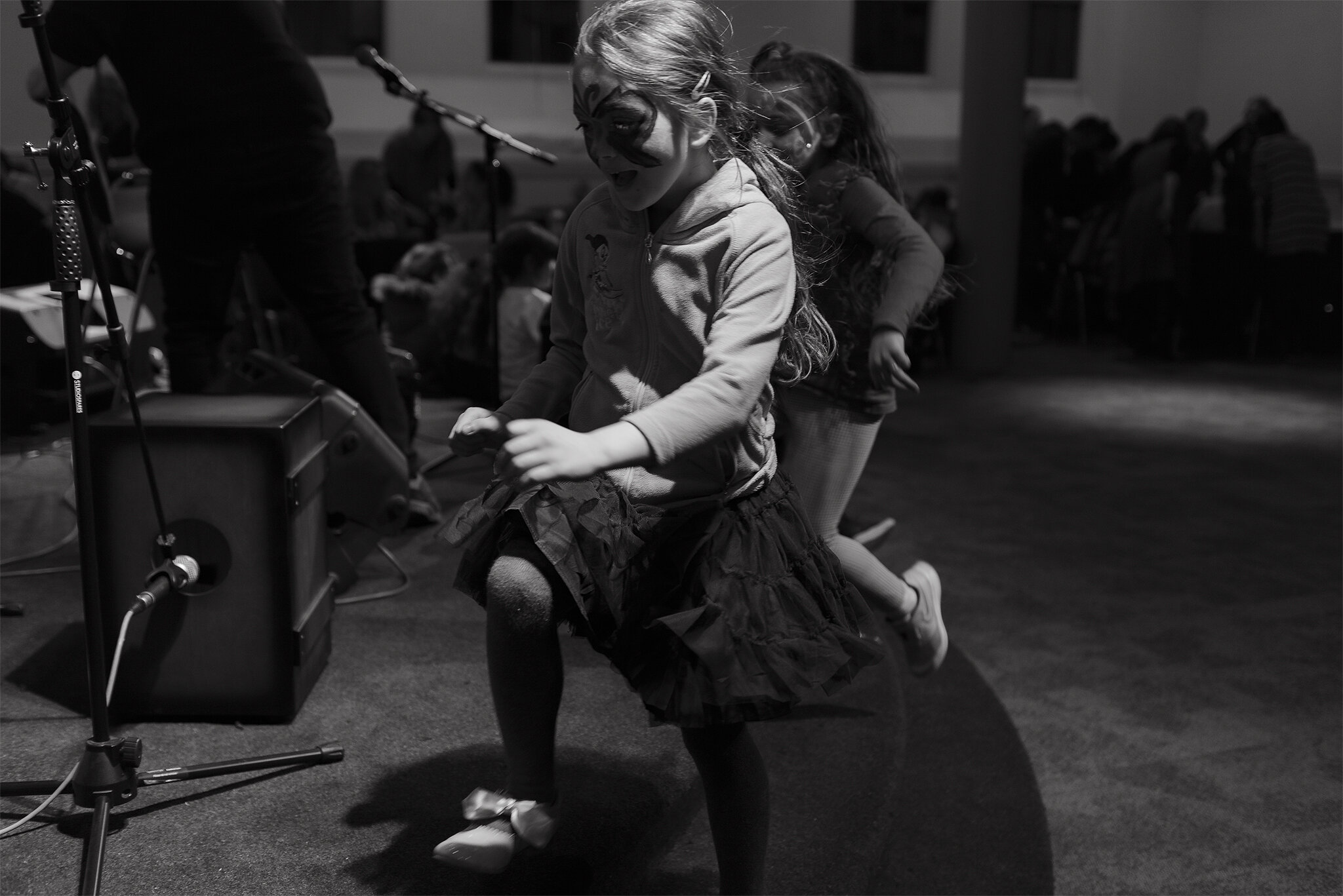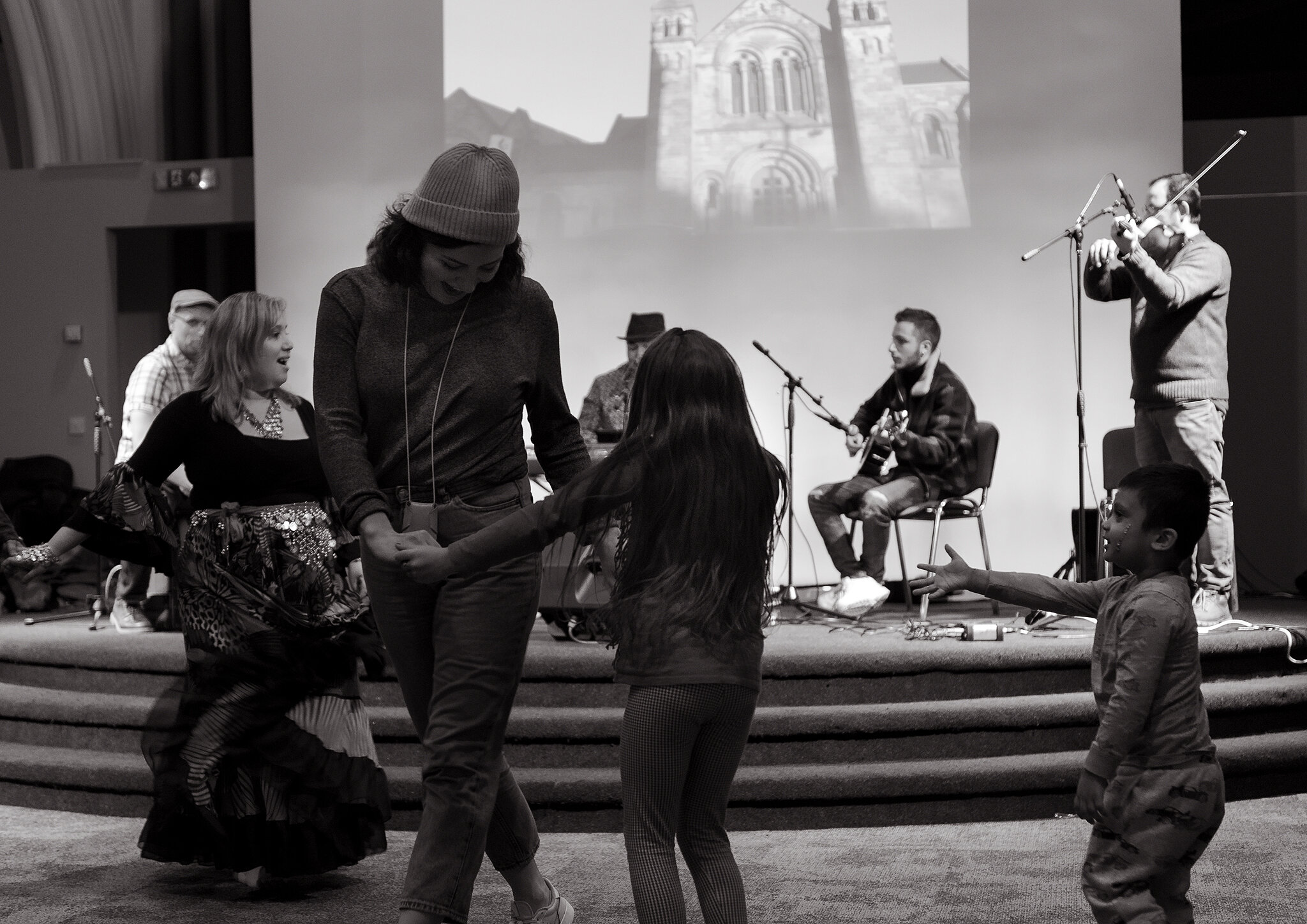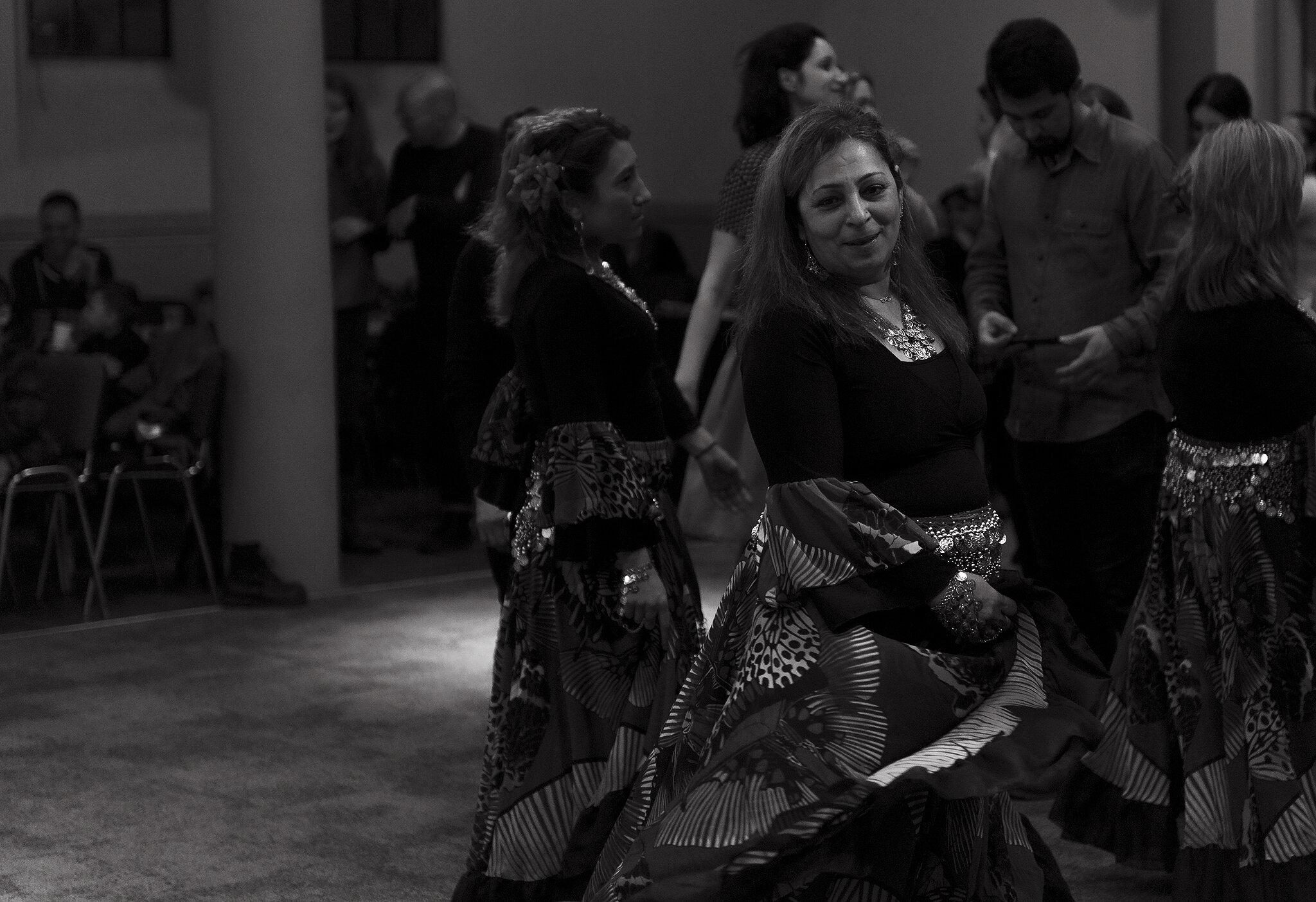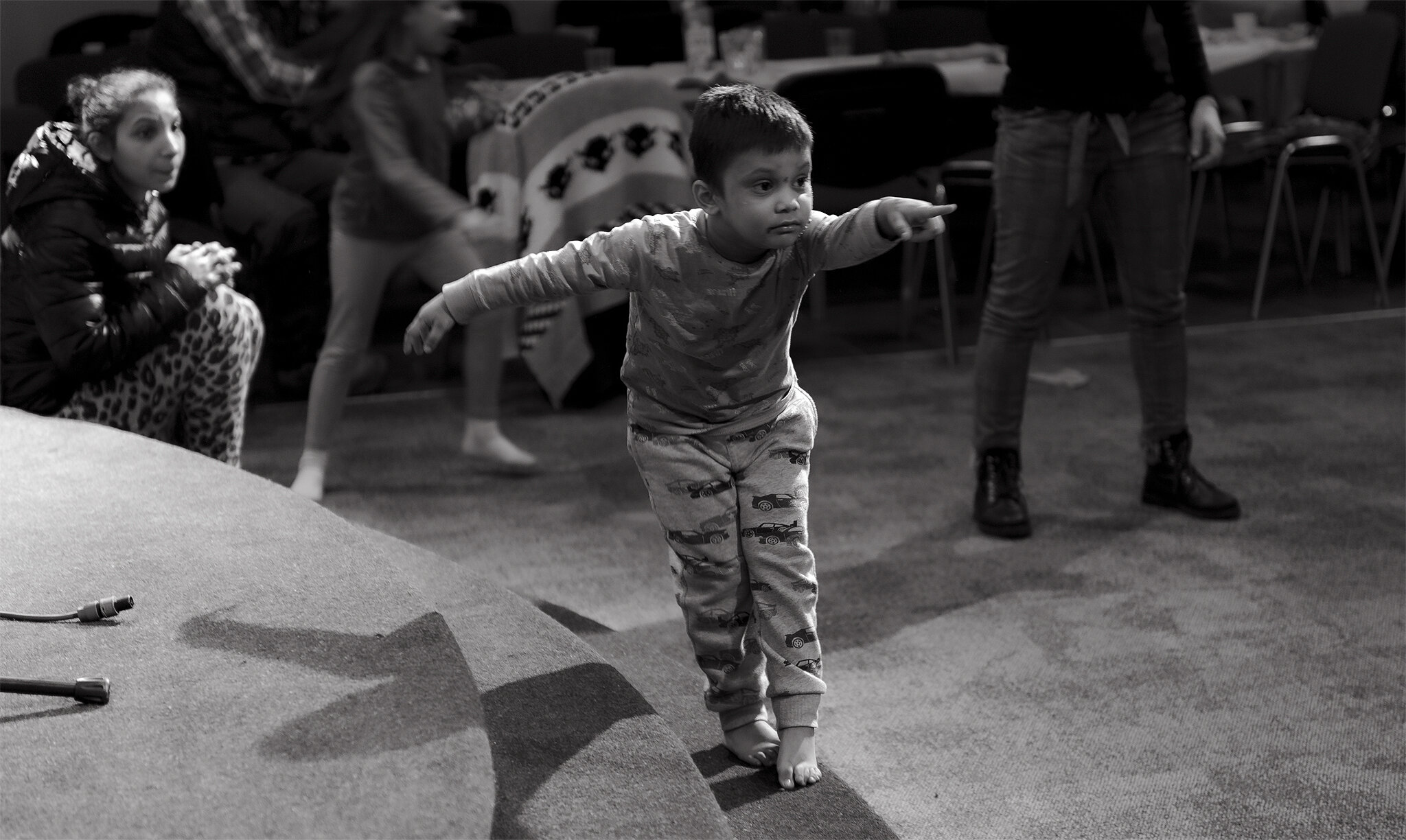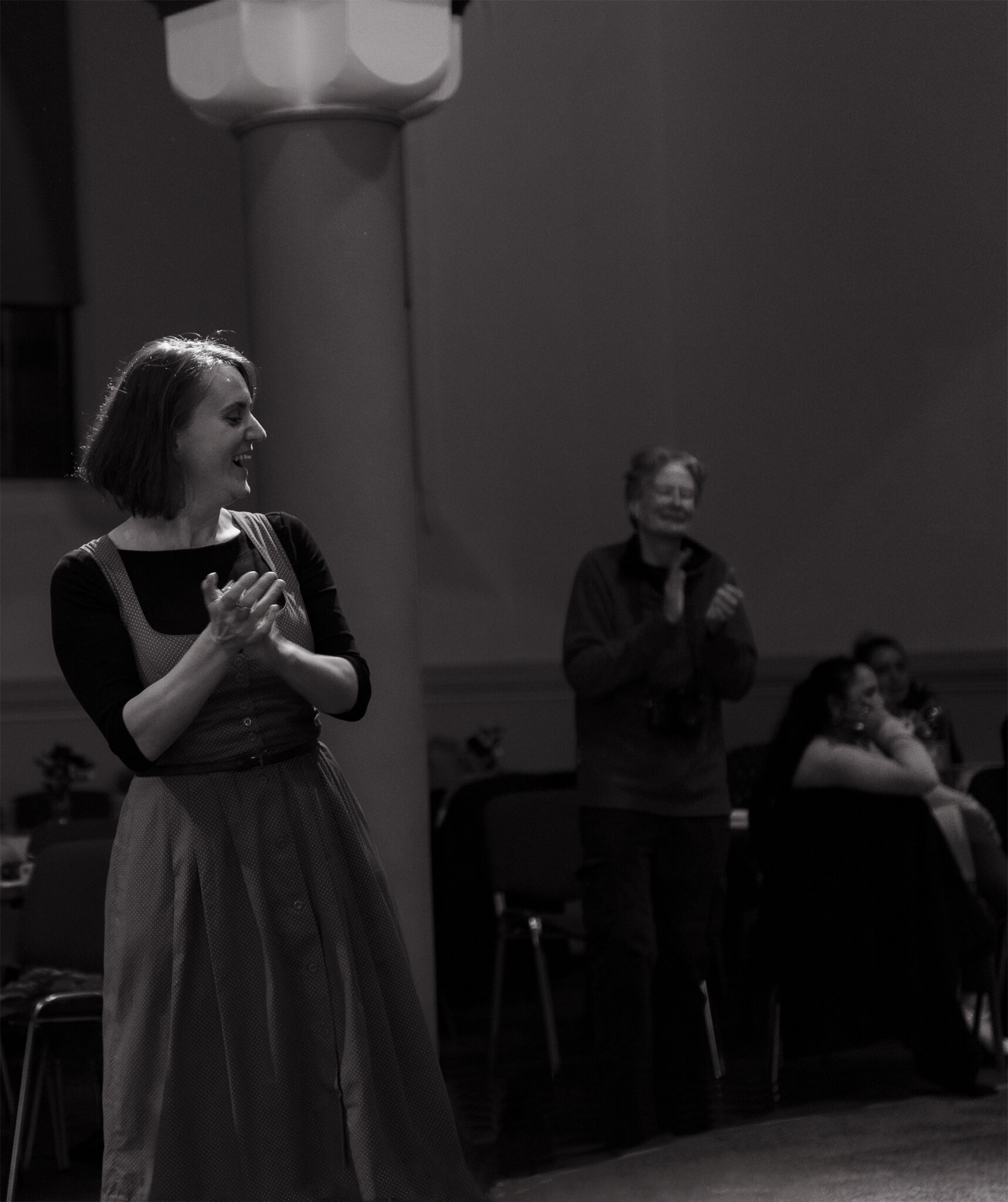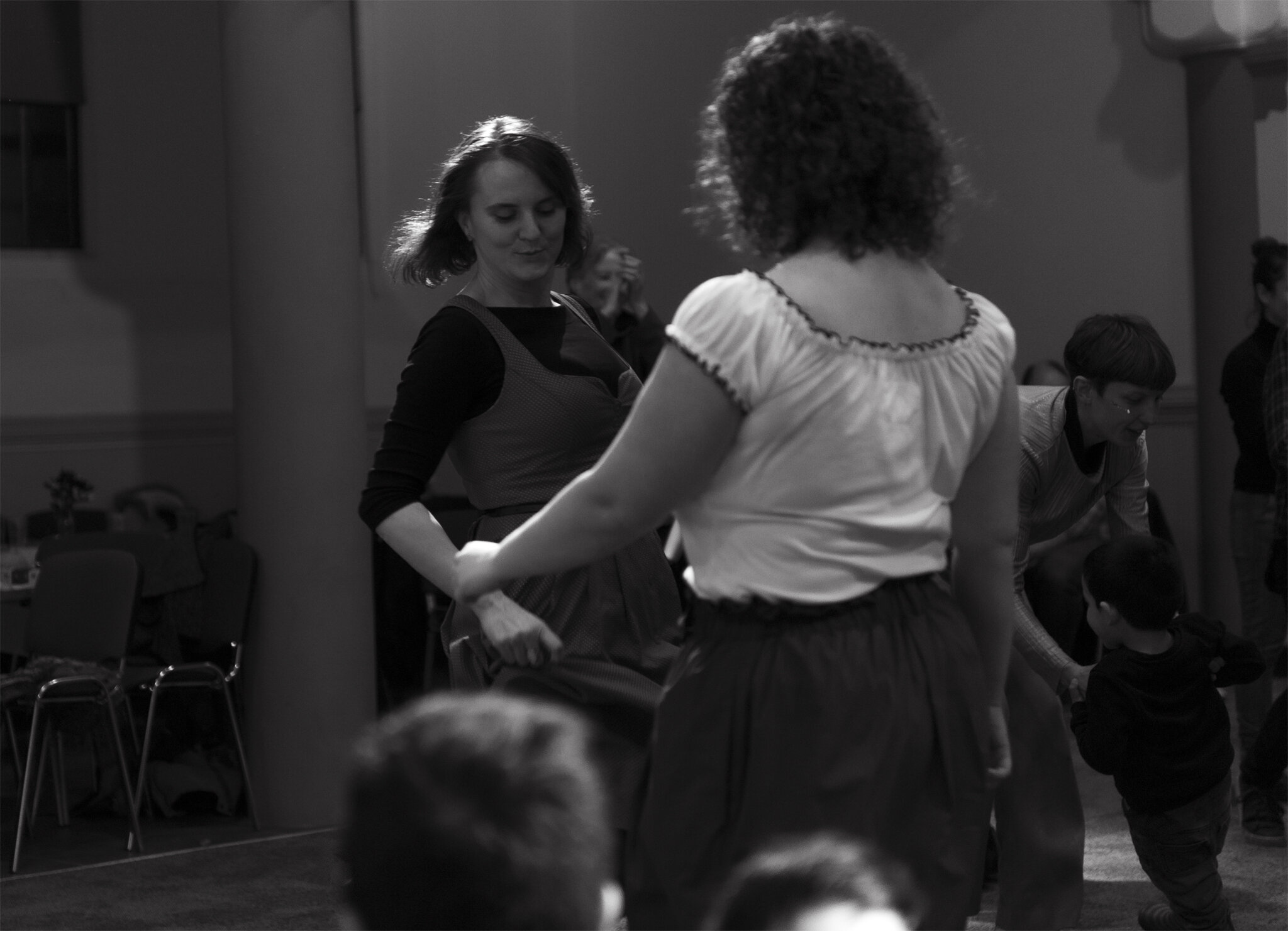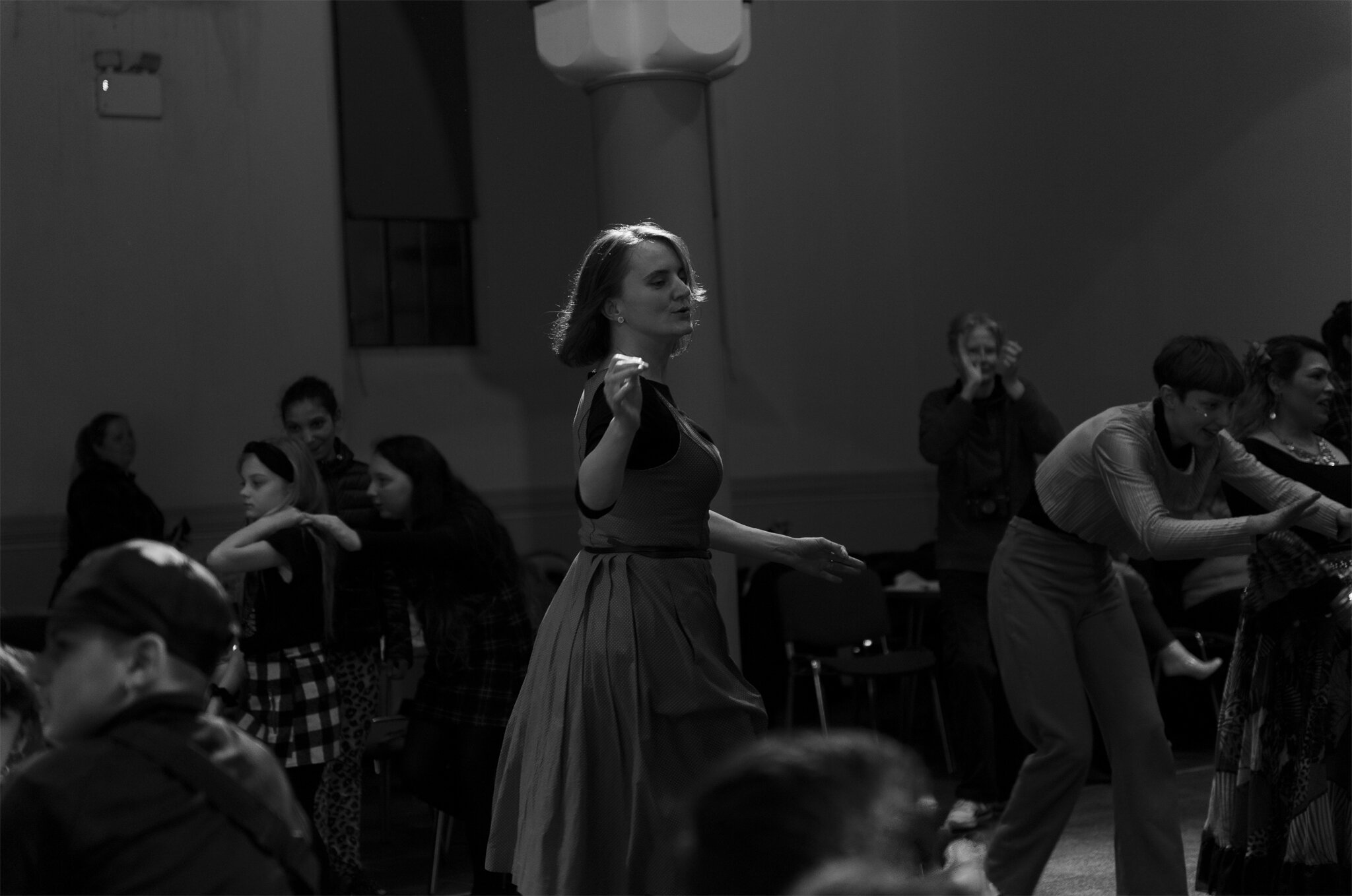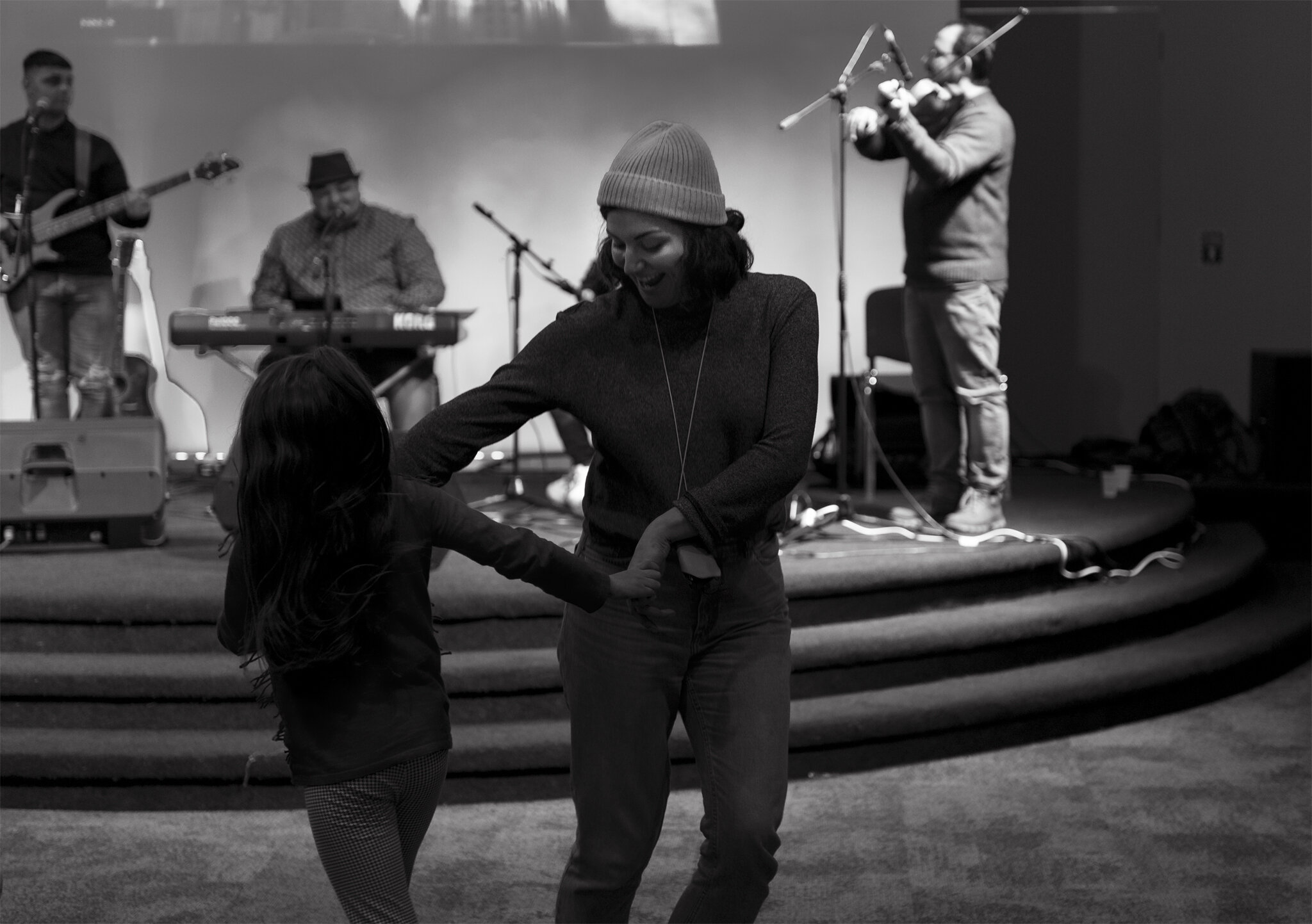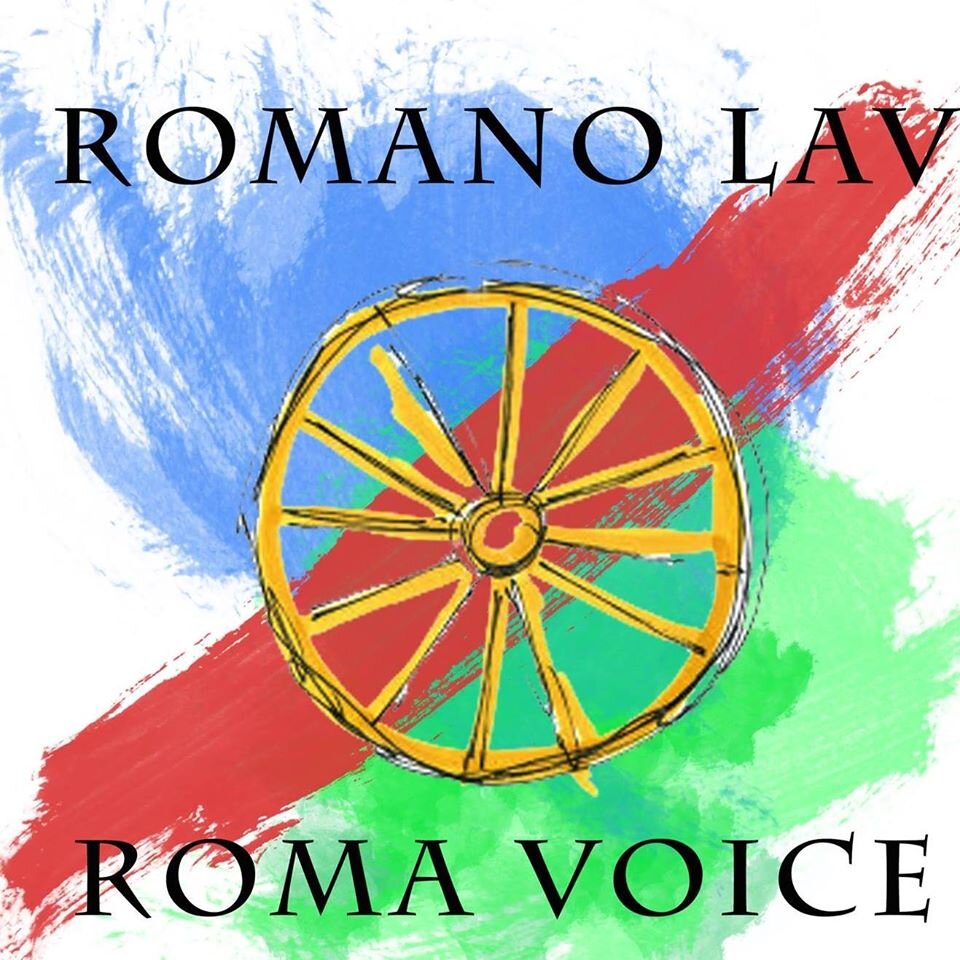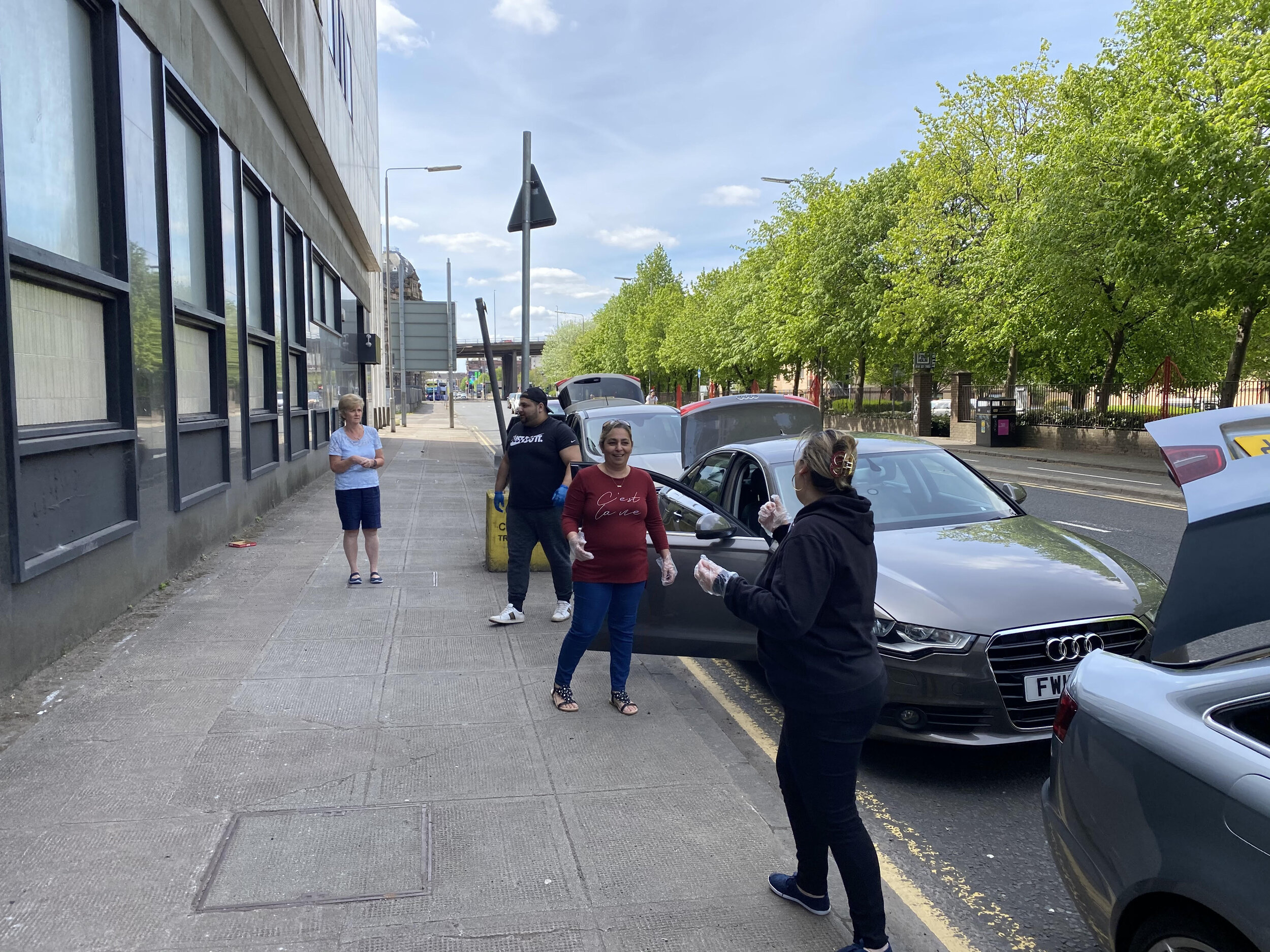Govanhill's Roma Helping Others Through the Pandemic
Marianna (left) and Dana (right) delivering food parcels in Govanhill
by Rhiannon J Davies
In some countries in Eastern Europe, racism and scapegoating are common problems for Roma people, Europe’s largest minority. According to Glasgow resident, Marek Balog, this has been exacerbated during the current pandemic:
“You hear stories of whole Roma neighbourhoods being completely shut off because of coronavirus. But the same thing doesn’t happen in other areas that have more cases. Many Roma villages don’t have running water, so it’s hard to follow the hygiene recommendations. But this isn’t their fault, they’re being unfairly blamed.”
Discrimination is often the driver for emigration among the Roma community and is the reason that Marek Balog left Slovakia over 13 years ago. He feels much more welcome in Scotland:
“In Slovakia, Roma people are segregated, children are placed in special needs schools. Here, we have a chance for education, both for ourselves and for our children. Here we have opportunities; in Slovakia we have none.”
Marek now works for Community Renewal on their Local Conversations - Roma Govanhill project, an initiative funded by the People’s Health Trust that ‘supports residents to develop a shared vision for their community and take local action on issues that matter to them’.
He speaks Slovakian, Polish and Czech, but has colleagues who speak Romanes, Hungarian and Romanian. Together, they work with local people to organise activities and events, such as the Multicultural Ceilidh that was held back in February and organised in conjunction with Crossroads Youth & Community Association and the Govanhill Community Development Trust.
“We try to encourage people to take part in local community activities, be more active and improve their health. We also try to make sure that Roma voices are heard, whether that’s speaking up in meetings about housing, or taking part in local consultations.”
Photos from the Multicultural Ceilidh | Copyright Michaela Ditrichova
Community Renewal offers a one-to-one employability service helping people to find jobs and skills training. Marek believes that this is a vital first step:
“Because it’s only with a stable income that people can really start to climb the ladder. It has a domino effect on everything else in their life.”
Are you interested in learning the Roma language, Romanes?
They have 11 members of staff, eight of whom are Roma people, an important factor for overcoming language and cultural barriers.
During the pandemic, the team have been working hard to connect to people online. They are translating government advice into the different languages spoken by the Roma community and recording video versions and voice overs for those who don’t have literacy skills.
They try and counter the fake news and hoaxes that are shared on Facebook, but it can sometimes take time for the correct advice to reach people.
“It’s difficult because not everyone is able to understand the government messaging right away. So, following some news reports, it was very upsetting to see what was being said about Roma people online.”
There has been talk of large numbers of Roma people leaving Govanhill for their home countries. But Marek thinks many will return. Although the situation is precarious at the moment, he believes they will once again be driven out by prejudice and oppressive measures that prevent people from accessing equality of opportunity.
Roma in Govanhill: Getting Through the Lockdown
While some may have left for now, many Roma people remain in Govanhill and Community Renewal are continuing to offer their support in a number of different ways. In normal circumstances, they run the weekly Govanhill Community Canteen, a multicultural communal gathering where people can get a free good quality hot meal. It’s made possible by the hard work of volunteers from the local community.
When lockdown began, they looked into how they could continue to provide meals to those in need. Local Conversations identified some families they knew to be struggling and bought supplies from the supermarket. But this operation has now expanded. They’re working with The Clutha Trust, and are using their personal cars to deliver food parcels to 47 families in the neighbourhood who may have lost their jobs or currently have no income.
Mariana, Dana, David and Sheila delivering food parcels for Community Renewal
“The nice thing is, is that we’ve had phone calls from some people saying they have now found work or received Universal Credit, and no longer need our support. People are keen to make sure that someone else can benefit from a drop off.
“The feedback we’re receiving makes us realise why we do this job. Anyone who had savings, doesn’t any longer. People can’t survive without support. There’s no shame in receiving these food parcels.”
The approach of the Local Conversations project is Rom Romeha, meaning ‘for Roma, by Roma’; Roma people helping others in Roma communities. This isn’t at the exclusion of others, but more a recognition that support has to come from within the community itself, from people who have been through it, and know how it feels to be a new arrival. Marek acknowledges that first there is often a need for basic support:
“If you’re in survival mode, and struggling to feed your family and pay your bills, you need to help yourself first, before you can help your community.”
When people have achieved stability, there are opportunities to take a more active role in the local area. One way is through the Local Conversations Community Forum, which normally meets once a month to discuss issues that may affect the community and to plan events and activities.
These meetings have now switched online. And the subject of the next meeting was how Roma people could use their sewing skills to start making face masks for the community. Like other ideas for support, this was a suggestion that came from the group itself, showing the willingness to help others and how important it is to have a platform where Roma voices can be heard.
For a traditional taste of Romania, Meals Collective, will be supporting the Al-Farooq Education and Community Centre today from 3pm, making and serving a Romanian meal for collection.

